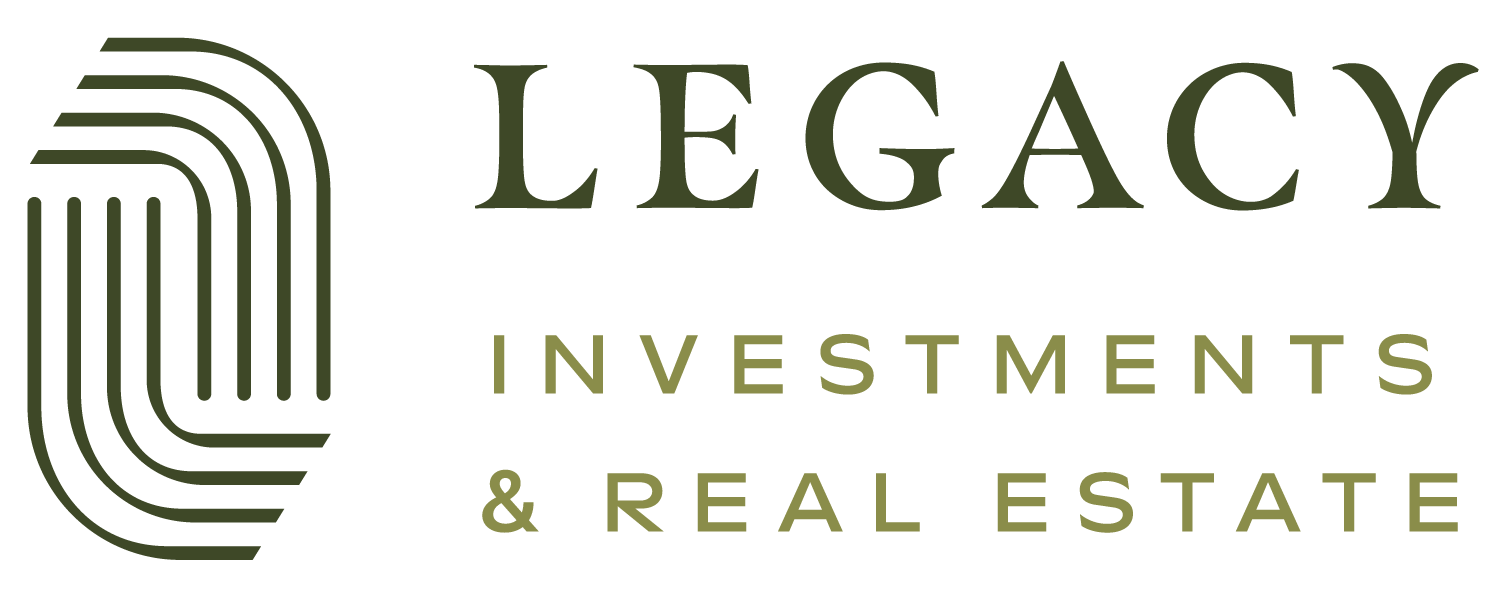Utilizing the 1031 Exchange into Delaware Statutory Trusts (DSTs) as an Estate Planning Tool
For many investors, real estate has been a cornerstone of wealth creation. But when it comes to passing that wealth on to the next generation, traditional real estate can present significant estate planning complications.
From managing tenants, toilets, and trash to dealing with capital gains tax, depreciation recapture, and estate division complexities, actively managed real estate can quickly go from blessing to burden for beneficiaries. Disagreements among beneficiaries, illiquidity, and the overall challenge of dividing physical property can lead to costly delays, poor investment decisions, and even family discord.
The good news is that it doesn’t have to be that way. With careful planning and the right tools, you can transition your real estate investments into a structure that provides tax deferral, estate efficiency, and long-term peace of mind.
The 1031 Exchange could be the key to realigning your investment strategy with your financial legacy.
The 1031 Exchange tax code creates the potential to sell your current property and roll the proceeds 100% tax deferred into real estate that is professionally managed.
Section 1031 of the Internal Revenue Code allows real estate investors to defer capital gains taxes when they sell an investment property and reinvest the proceeds into another “like-kind” property. Traditionally, investors would roll into another property that requires active management, but this doesn’t address the headaches of landlording or estate planning needs. Many investors are still unaware that IRS-approved passive replacement property options, like the Delaware Statutory Trust (DST), even exist.
The Estate Planning Advantages of the Delaware Statutory Trust (DST)
A Delaware Statutory Trust is a legal entity that allows multiple investors to co-own fractional interests in a professionally managed real estate portfolio that would typically only be available to large-scale corporate investment groups. DSTs are structured to qualify as “like-kind” property for the purposes of a 1031 Exchange, making them an IRS-approved replacement option that comes with significant advantages:
Completely Passive Ownership
Professional asset managers handle all aspects of property maintenance, leasing, and financial reporting, allowing you and your beneficiaries to reap the benefits of real estate ownership without the usual headaches of landlording.
Access to Premium Commercial Real Estate
DSTs often invest in professionally managed, income-producing properties that are typically only available to institutional investors.
Portfolio Diversification
Many DSTs invest in geographically and sectorally diversified portfolios, which may help reduce risk by spreading your investment across multiple properties and markets.
Wealth Transfer Flexibility
Structured as securities, DSTs offer more flexibility in dividing ownership interests among beneficiaries without the need to sell properties. They can also make probate easier or unnecessary for these assets, enabling a smoother transition of wealth.
Simplified Charitable Giving
A DST can simplify the process of designating a charity or non-profit organization as a beneficiary of your estate. The charitable organization benefits from the income potential of the DST, without taking on the administrative burden of managing real estate.
Stepped-Up Basis
When you pass away, your beneficiaries receive a “stepped-up basis” on the properties they inherit, preserving more of the wealth you’ve accumulated. This means that the value of the property is adjusted to its fair market value at the time of your death, essentially eliminating the deferred capital gains tax burden for your heirs.
The Process of 1031 Exchanging into DSTs for Estate Planning: From Active Ownership to Estate Efficiency
Our experienced team will seamlessly guide you through the entire exchange process to ensure all regulations are followed and no taxes are owed.
1.List and Sell Your Property
Contact a listing broker and put your property on the market. We can help you find a specialist who can list and sell your property.
2. Execute a 1031 Exchange
Upon closing, your sale proceeds will transfer to a qualified intermediary. The funds will be held in their escrow account until they are used to purchase your replacement property. You cannot take constructive receipt of your sale proceeds during an exchange.
Legacy does not perform intermediary services, but we can refer you to one of the trusted professionals we work with who are experienced and bonded.
3. Invest in a DST
Instead of buying another actively managed property, you exchange into one or more DSTs. This satisfies the IRS “like-kind” requirements while eliminating the burdens associated with property management.
Our team is committed to delivering exceptional service by hand-selecting properties that align with your investment goals, eliminating the need for you to sift through endless options. We take the guesswork out of property identification, crafting a tailored portfolio designed to best position you for long-term success.
4. Hold the DST Until Death
Continue enjoying passive income potential, ongoing tax deferral, and potential appreciation from the DST investment throughout your life.
5. Transfer DST Interests to Heirs
After death, your DST ownership interests will pass to your beneficiaries. In addition to inheriting the passive income potential you previously enjoyed, they will also receive a stepped-up basis, effectively erasing the deferred capital gains liability.
Upon the sale of the DST property or portfolio, your beneficiaries will have the same three options available to them as you have with your current investment property sale. Because each beneficiary’s ownership is entirely separate from the other, they can choose the option that best meets their individual needs and goals.
Build Your Legacy with the Right Tools
Utilizing a 1031 Exchange into a Delaware Statutory Trust allows investors to simplify their real estate holdings, continue deferring taxes, and enhance their estate planning strategy without sacrificing income potential. At Legacy Investments & Real Estate, we specialize in helping investors understand and implement these solutions in a way that aligns with their personal and financial goals.
If you’re looking to reduce the burden of property ownership and set your family up for long-term success, we invite you to learn more about DSTs and how they might fit into your 1031 Exchange and estate plan.
Your legacy matters. Let’s protect it—strategically, passively, and tax-efficiently.
Legacy Investments & Real Estate is your partner in passive real estate.
We are passionate in our pursuit to help every investor build their financial legacy by unlocking the power of passive real estate. Through custom strategies aligned to their unique goals and needs, we provide investors with the potential for all the benefits of real estate investing without the headaches of property management.
Ready for professional, tailored guidance on your passive real estate investment needs?
Other resources you might find helpful
Because investor situations and objectives vary this information is not intended to indicate suitability or a recommendation for any individual investor.
This is for informational purposes only, does not constitute individual investment advice, and should not be relied upon as tax or legal advice. Please consult the appropriate professional regarding your individual circumstance.
Potential cash flows/returns/appreciation are not guaranteed and could be lower than anticipated.
Diversification does not guarantee a profit or protect against a loss in a declining market. It is a method used to help manage investment risk.
There are material risks associated with investing in DST properties and real estate securities including liquidity, tenant vacancies, general market
conditions and competition, lack of operating history, interest rate risks, the risk of new supply coming to market and softening rental rates, general risks of owning/operating commercial and multifamily properties, short term leases associated with multi-family properties, financing risks, potential adverse tax consequences, general economic risks, development risks, long hold periods, and potential loss of the entire investment principal.
DST 1031 properties are only available to accredited investors (typically defined as having a $1 million net worth excluding primary residence or
$200,000 income individually/$300,000 jointly of the last two years; or have an active Series 7, Series 82, or Series 65). Individuals holding a Series 66 do not fall under this definition) and accredited entities only. If you are unsure if you are an accredited investor and/or an accredited entity, please verify with your CPA and Attorney





